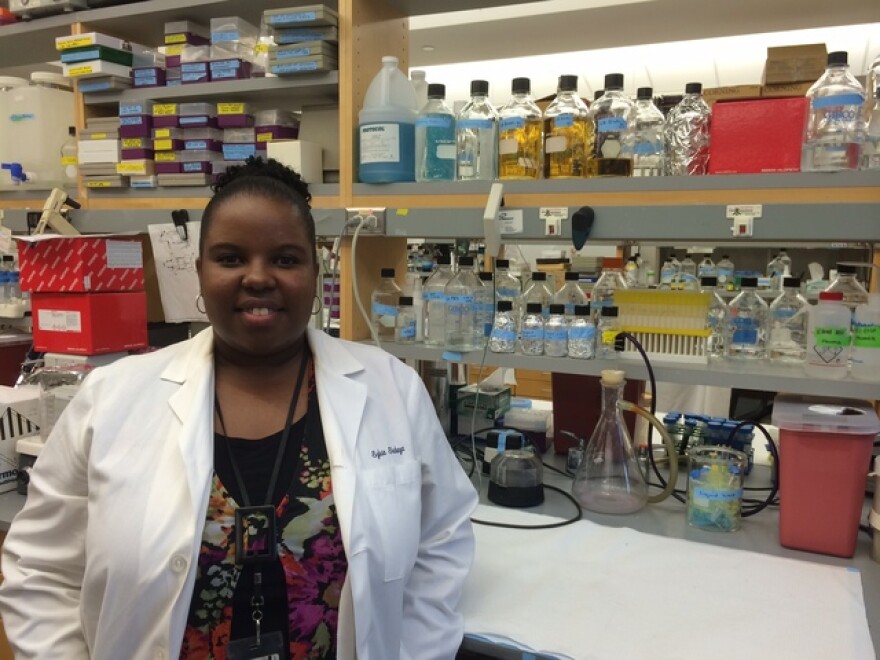To see postdoctoral researcher Sylvia Shabaya Gayle get excited, ask her to show you around the lab where she studies breast cancer cells.
"So, this is a sterile environment because we don't want to introduce any bacteria or anything else to the cancer cells," Gayle says, "And any changes that we see in a cancer cell we want to be as a result of a treatment that we did."
Gayle's research focuses on finding a new drug combination to fight a Triple Negative Breast Cancer. She’s already had some success in this area and has published papers on it. took home a big prize for young researchers.
As an African-American kid growing up in Akron, Ohio, Gayle says she didn't fit the typical mold of someone destined to research new discoveries in a lab at Case - one the state's top NIH scientific grant recipients.
She worked hard. She scored good grades. She and received grant and fellowship funding from the National Institutes of Health for her education and research.
"I'm where I am today because of time and money they have invested in me over me over the past decade," Gayle says.
She - not-so-jokingly - calls herself an NIH poster child.
"The goal is for me to transition into having my own lab. So, you know, which takes funding," Gayle says."So that is the goal, that is what I’ve trained for my whole academic career, is to have my own independent lab. To be an independent researcher."
But now – just on the cusp of becoming what she set out to be , theat money is running out.
"There's so much great science that is left on the table simply because we don't have funding for it," says Sally Rockey, deputy director for Extramural Research at the National Institutes of Health.
Rockey spends a lot of time talking to young postdoctoral students as well as experienced researchers. Young postdocs and seasoned researchers alike are feeling the pinch. They are competing for a slice of shrinking federal funds.
In the 1990s, about 30 percent of grants would win funding. But Rockey says that number has been steadily falling.
"When we started coming down a little bit, we were at a 25 percent success rate. So that means you had a one out of four chance of getting funded. Now it's a one out of 6 six or 7 chance of getting funded," she says.
Ann Bonham, chief scientific officer for the Association of American Medical Colleges, says says that lack of NIH funding is a bigger than just job security for researchers.
"In the end, really, this is about health," Bonham says. "This is about creating new drugs, new treatments, new approaches to therapy that can make a difference."
Back at Case, Ruth Keri is the principal investigator for Gayle's project. Her lab focuses on one of the best-known diseases of our time- breast cancer. Yet, her funding has dropped from $600,000 several years ago to $400,000 this year.
She needs a new grant to keep Gayle employed and keep the research going. Keri finds herself working 60-70 hours a week, spending most of those hours writing grant proposals.
"You're constantly worrying about how am I going to renew this grant," Keri says.
Together Both, Keri and Gayle wish they could spend more time on their research to fight breast cancer.
They feel so close to seeing their research into this new drug cocktail pay off. Gayle says she needs just a little more time.
"I am ready to now do the research that the NIH has invested so much money in preparing me for. And I just need - voice cracks - additional funding to be able to, to...to finish," Gayle says.
Unless a new grant is won, Gayle's funding runs out in July.



